Blog > The New Parents Sleep Guide 2024 [15 Sleep Tips]
Blog > The New Parents Sleep Guide 2024 [15 Sleep Tips]
Sleep is important for everyone but especially parents and kids. First-time and new parents frequently experience sleep deprivation and trouble sleeping. Not only do the parents have trouble, sometimes the new baby does as well! The phrase “sleep like a baby” doesn’t always apply.
Sleep troubles and the health issues that come along with them can happen at any stage of your child’s life. Children learn from examples and habits established early in life. It is your job as a parent to assist your children in developing appropriate sleep habits that will last a lifetime. The habits you develop now can help them sleep well during their life, not just in childhood.
Helping your child (and yourself) get to sleep is easier said than done. This guide offers some things to watch out for, sleep problems, and tips for sleep success.
For more tips, skip to the infographic below.

For parents of small children, one of the most difficult tasks is getting enough sleep. Babies and toddlers are still learning about the world around them and how sleep works. Babies have not yet developed circadian rhythms and won’t until they are about 12 weeks old.
By three to six months, most infants have a consistent sleep schedule. According to the American Academy of Pediatrics, children who have difficulty sleeping when they are six months old are more likely to have long-term sleep problems.
While there are many sleep problems that can plague children this age, here are the most common and some solutions.
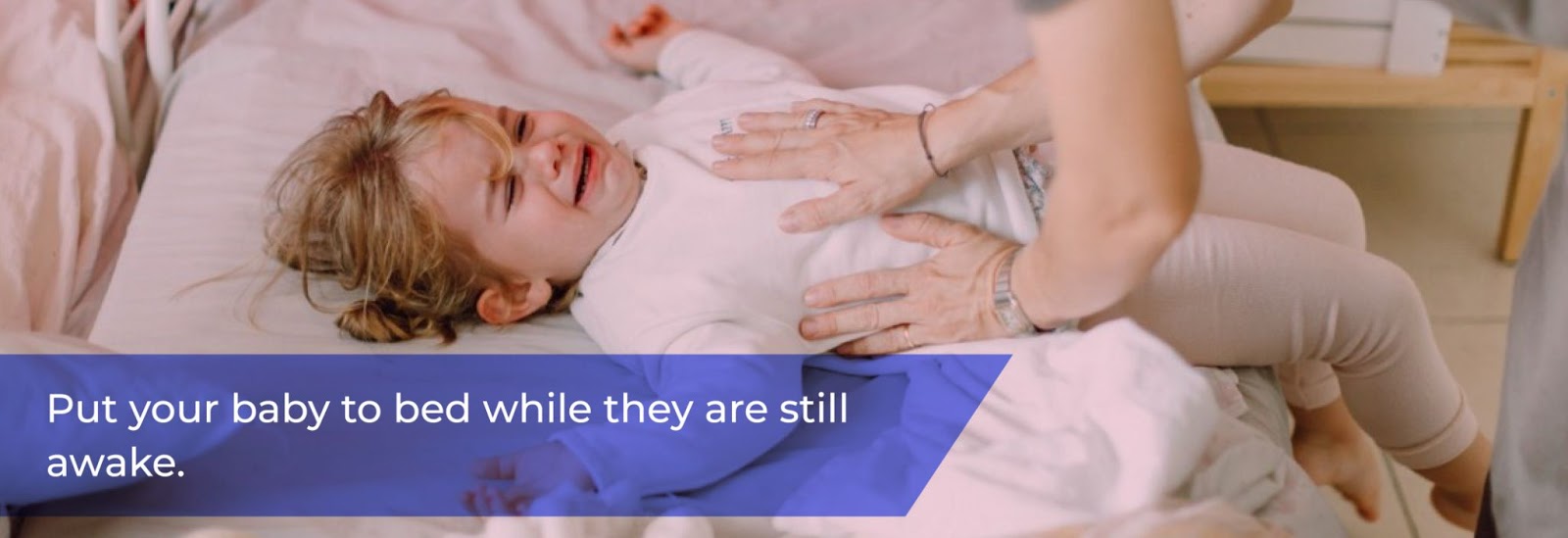
A common problem for babies and toddlers, sleep regression is simply when a child is sleeping well and doesn’t anymore. Regressions happen as babies fully develop their circadian rhythm and go through the lighter stages of sleep. During this time, they are more likely to be woken up.
Expert Solution: Put your baby to bed while they are still awake. “You want your child to be, at most, drowsy, so they complete the transition into sleep on their own. This method helps your baby learn to fall back to sleep on their own when they wake up in the middle of the night.”- Noah Schwartz, MD.
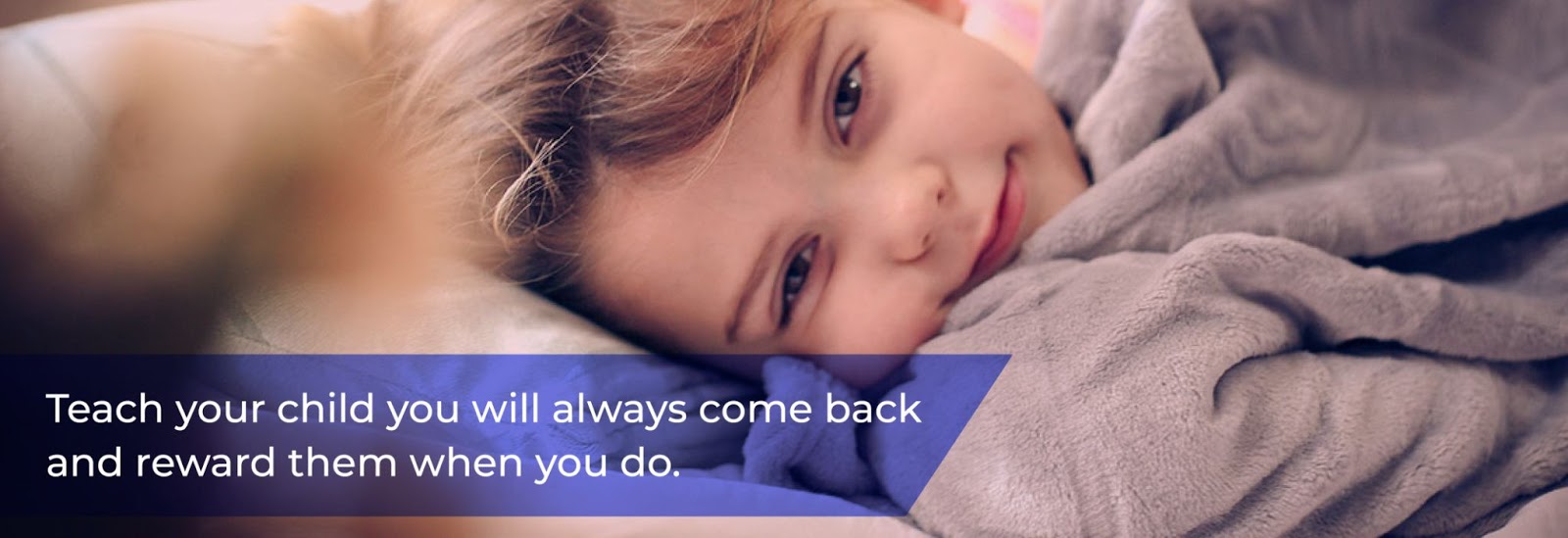
Anxiety in babies and toddlers presents itself more as separation anxiety than other anxiety disorders experienced by older children and adults. If your baby cries when you leave the room, they are most likely suffering from separation anxiety. This most often occurs when children are around 8 months old and are aware enough to figure out they are alone.
Expert Solution: Teach your child you will always come back and reward them when you do. “As parents, we often overlook an important part of the separation process: the reunion. Happy reunion rituals are essential to reinforcing the parent-child bond and keeping separation anxiety in check.
These kinds of happy returns remind your child that no matter how sad it is when Mommy and Daddy leave. It's always wonderful when they come back."- Ross A. Thompson, Ph.D., professor of psychology, University of Nebraska.
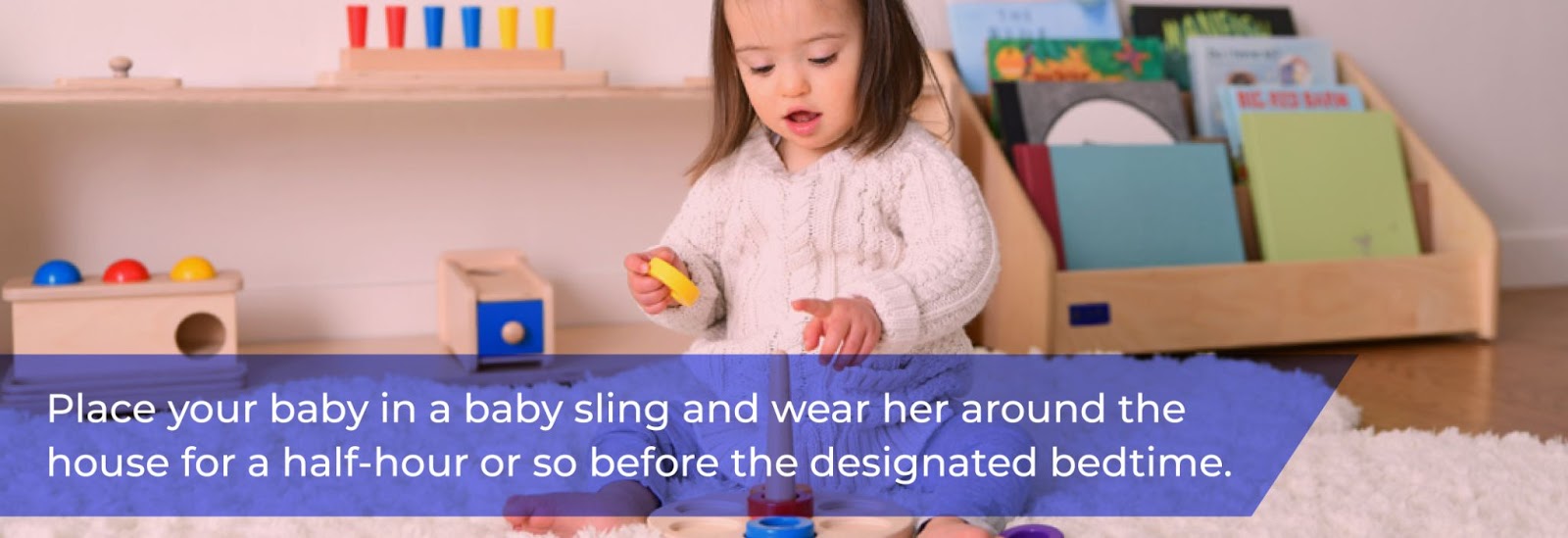
When feeding or changing your baby at night, they might wake up and get stimulated again. This can fully wake up them again and make it difficult for them to fall back asleep.
It is sometimes unavoidable, but it is best to let your baby sleep through the night so they don’t get overstimulated. Babies can also become overstimulated during the day and leave them and you awake at night. .
Expert Solution: “Put your baby in a wearable sling. Some babies are so revved up during the day that they have trouble winding down at night. Place your baby in a baby sling and wear her around the house for a half-hour or so before the designated bedtime. When fully asleep in the sling, ease them out of the sling and into bed.”- Bill Sears, MD,

Newborn's circadian rhythms have not yet formed and they may not be able to distinguish between night and day. This causes the day/night switch-something parents dread. Babies cannot distinguish between day and night, which causes them to sleep during the day and stay up at night. This is related to the baby's movement in the womb: daytime activity rocked the infant to sleep all day, while nighttime action kept the infant awake.
Expert Solution: “During daylight hours, when you want your baby to be awake, open your shades and curtains and put on some lively music. Play with him. Let the phone ring, run the dishwasher, and in general allow normal household noise to happen.” -Deborah Lin-Dyken, MD.
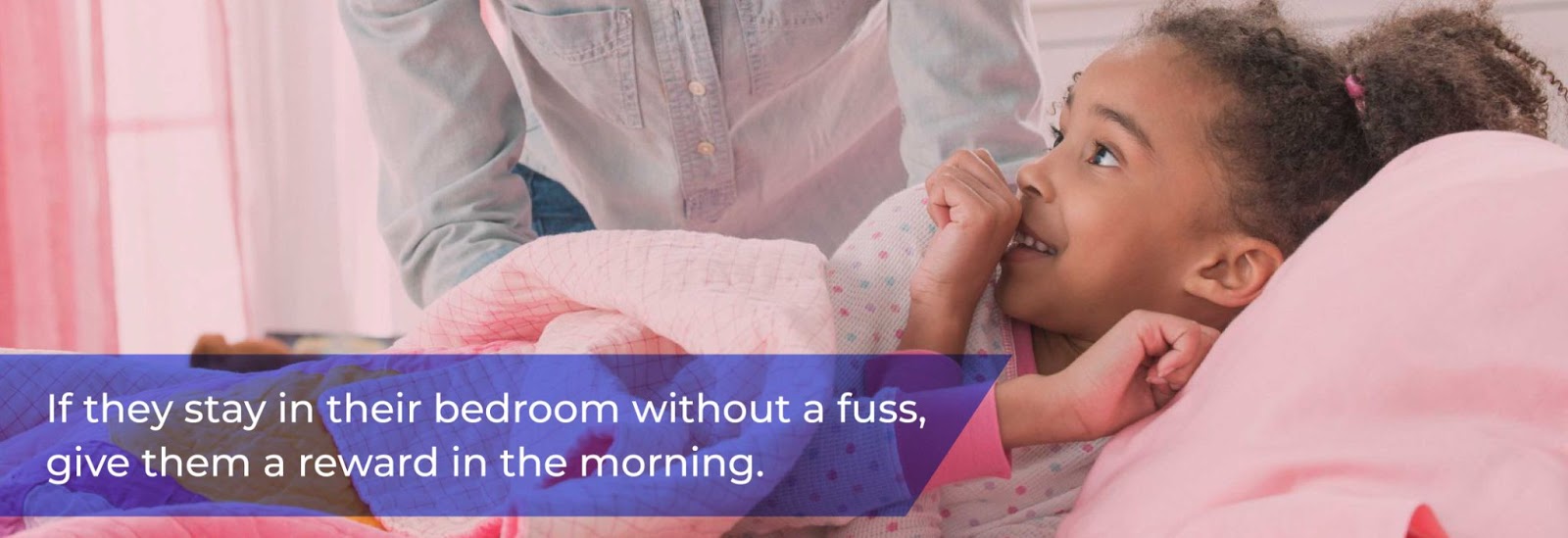
Babies rarely suffer from sleep resistance and will sleep when you want them to. However, toddlers and preschool-aged children are a different story.
Toddlers are more aware of their surroundings, spend their days discovering new things, playing, and learning. When it is time for bed, they might not want the fun to end. Children this age might prolong their bedtime routines, try to make it last longer, or refuse to go to bed.
Expert Solution: “Give your child an incentive for changing his bedtime behavior.
If he stays in his bedroom without a fuss, give him a reward in the morning. Give him a special treat with breakfast, such as a serving of ice cream or a special cartoon show. The average child will change his behavior for something he really wants. You just need to be creative.” - Greenwood Pediatrics.
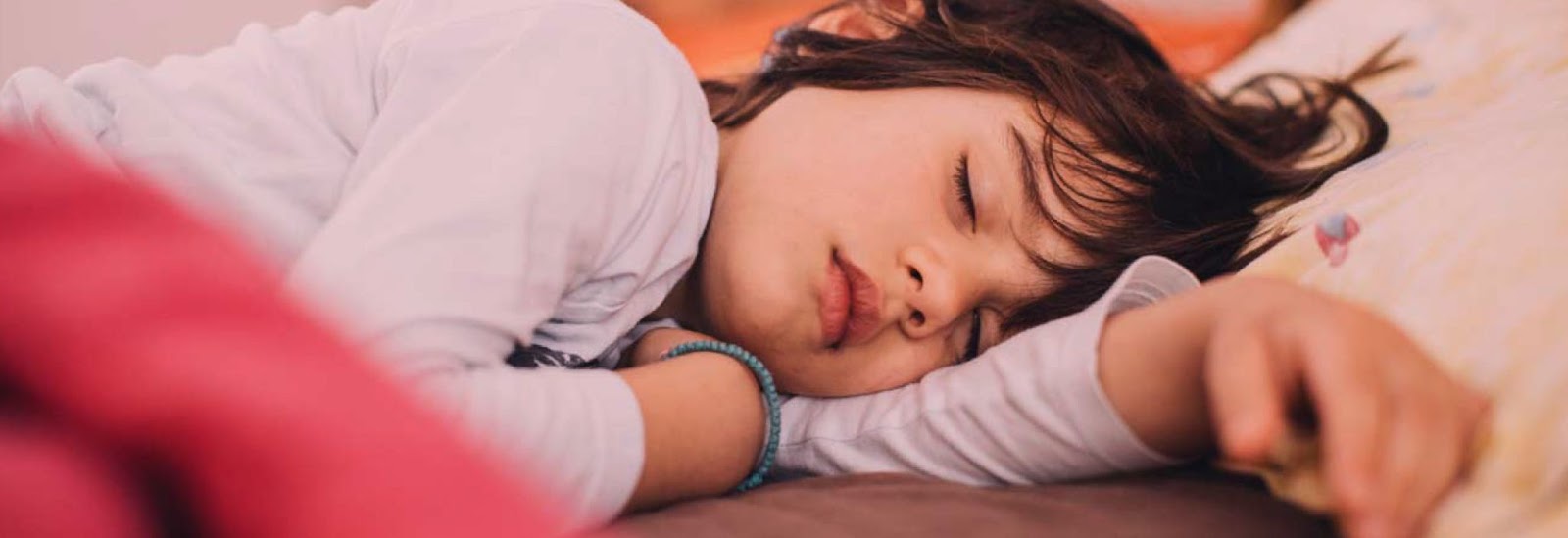
As children grow up and get into school, new sleep problems can develop. As school, extracurricular activities, social lives, and later bedtimes are introduced, children in this age group are likely to have sleep issues. REM sleep stages differ as children grow up and spend less time in REM than adults. This makes it particularly important for school-aged children to get the best possible sleep each night.
Does your child suffer from any of these sleep problems? If so, here’s a rundown of the most common sleep problems for school-aged children and some solutions.
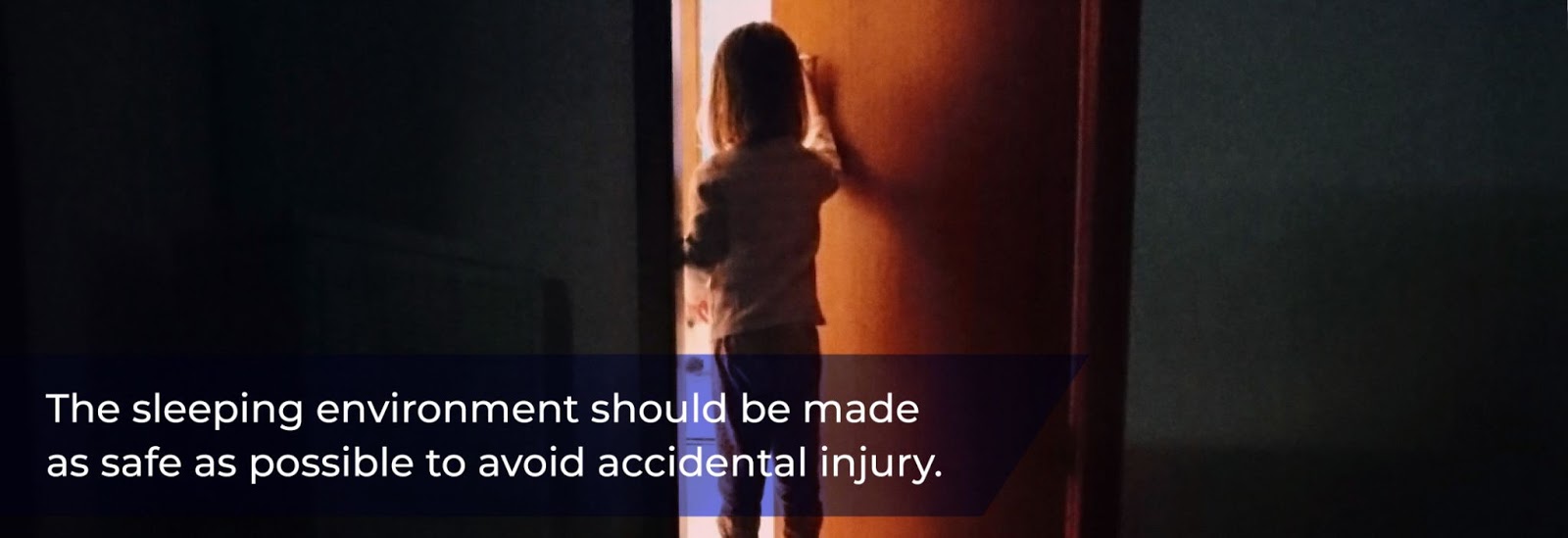
Sleepwalking occurs when the sleep-wake cycle has been disrupted. During sleepwalking, the body can move, but the brain is still sleeping and is most likely to occur during the first hour of going to sleep. Most children will stop sleepwalking before they reach adolescence.
Expert Solution: “Sleepwalkers can injure themselves or leave the house during an episode. Make sure that all outside doors and windows are secure. The sleeping environment should be made as safe as possible to avoid accidental injury.
Remove clutter from floors, keep all objects off stairs, and keep hallways lit. Tying bells to your child’s bedroom door can alert you to the sleepwalking incident. Some parents keep their sleepwalking child limited to the bedroom by securely installing a screen door or high gate to the bedroom door.” - Seattle Children’s Hospital Sleep Disorder Clinic
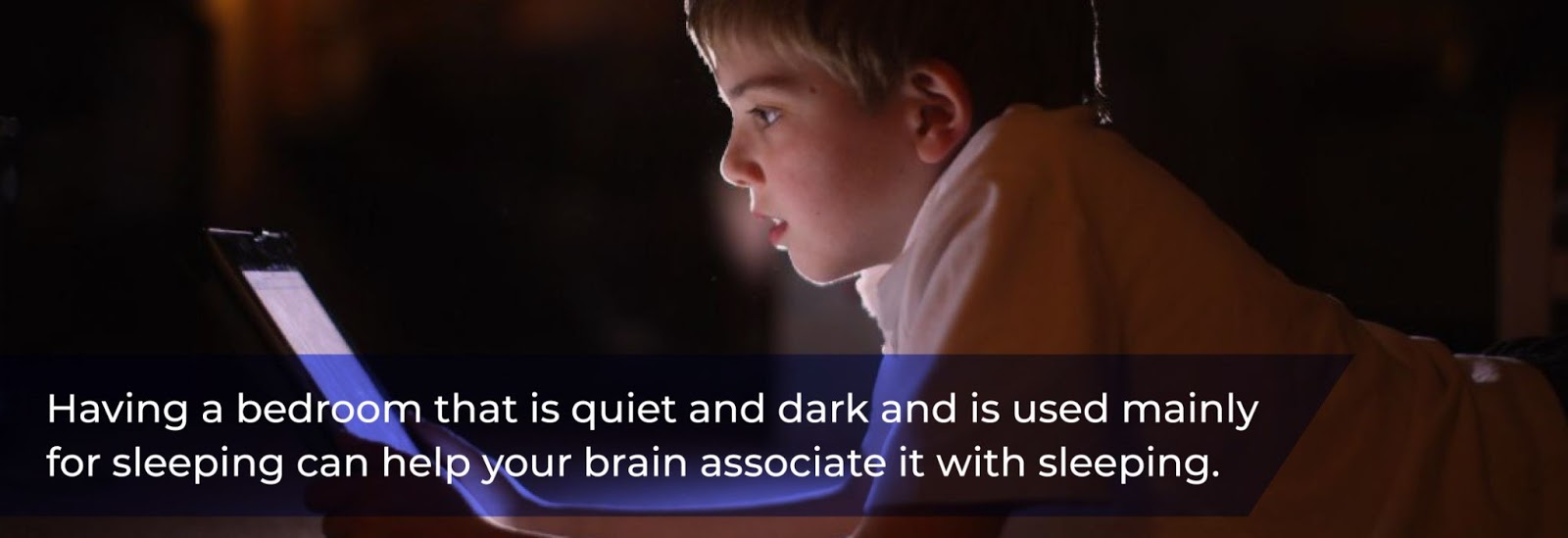
A problem that plagues adults as well, too much screen time is a common cause of poor sleep. During the day, school-aged children spend a significant amount of time gazing at devices-both at home and at school.
Some screen time is helpful and necessary for learning, too much can disrupt sleep, especially when it occurs right before bedtime. Screens' intense artificial light can mess with your child's circadian rhythm. To help your child decrease screen time, emphasize screen-free physical activity and turn off all screens at least an hour before bedtime.
Expert Solution: “Having a bedroom that is quiet and dark and is used mainly for sleeping can help your brain associate it with sleeping.” Dr. Anjalee Galion, Pediatric Neurologist
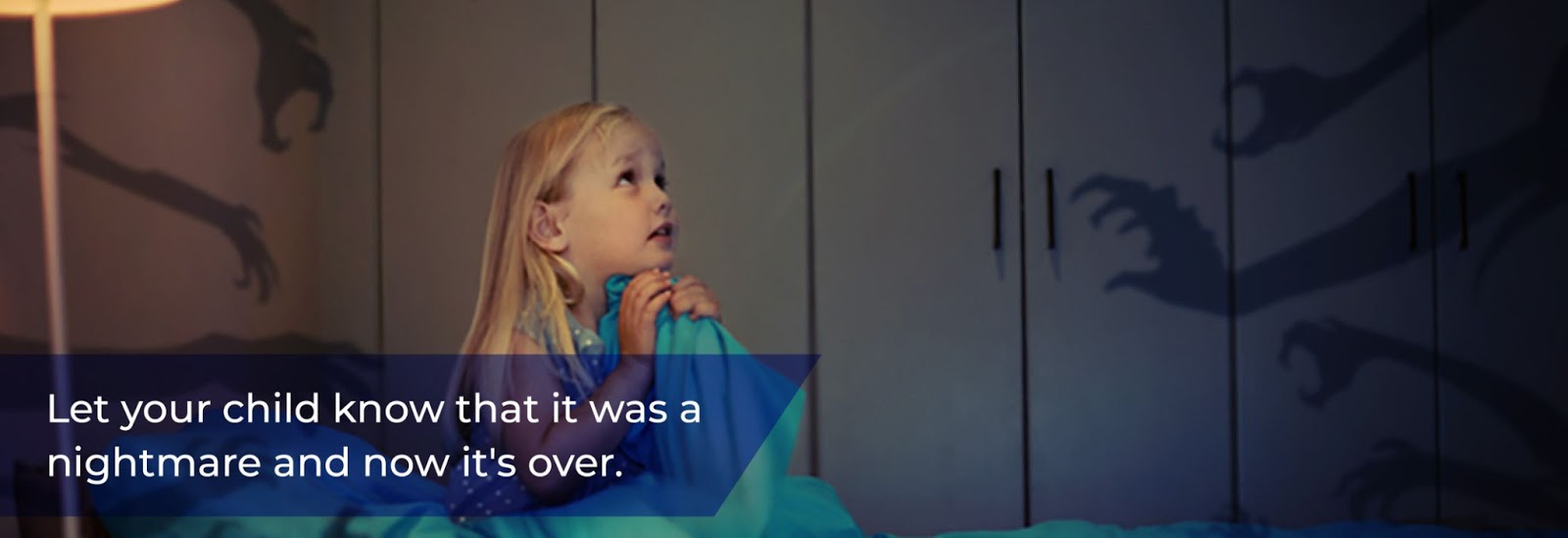
Children of all ages have the occasional nightmare, but school-aged children are particularly vulnerable. Nightmares increase as they learn more about real-life risks and fears. Children who have nightmares may wake up afraid, disrupting their sleep—and possibly bothering them the following day.
Expert Solution: Let your child know that it was a nightmare and now it's over. You might say something like, ‘You had a bad dream, but now you're awake and everything is OK.’ Reassure your child that the scary stuff in the nightmare didn't happen in the real world.”- Elana Pearl Ben-Joseph, MD via Nemours.
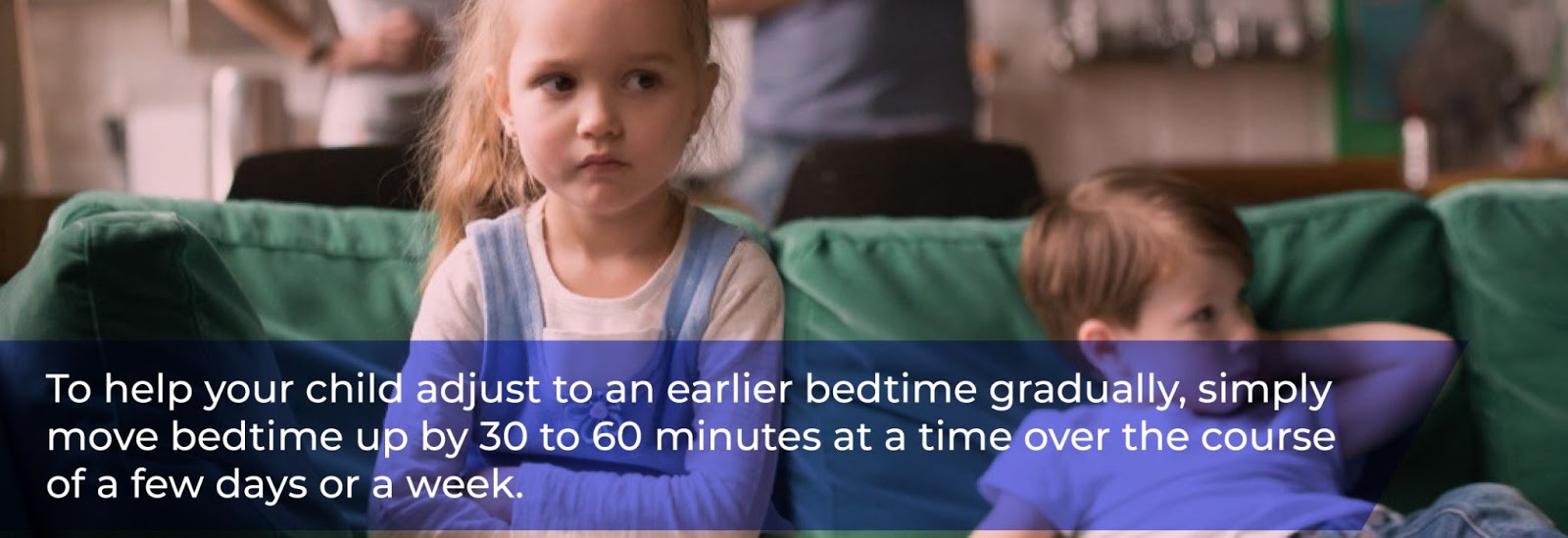
During the summer, many families gradually shift to a later bedtime with longer days and more activities. Summer fun is an important part of childhood. This disruption of schedule can lead to trouble readjusting to waking up early when it's back to school time.
Expert Solution: “To help your child adjust to an earlier bedtime gradually, simply move bedtime up by 30 to 60 minutes at a time over the course of a few days or a week.”- Kim West, Certified Sleep Coach, The Sleep Lady.
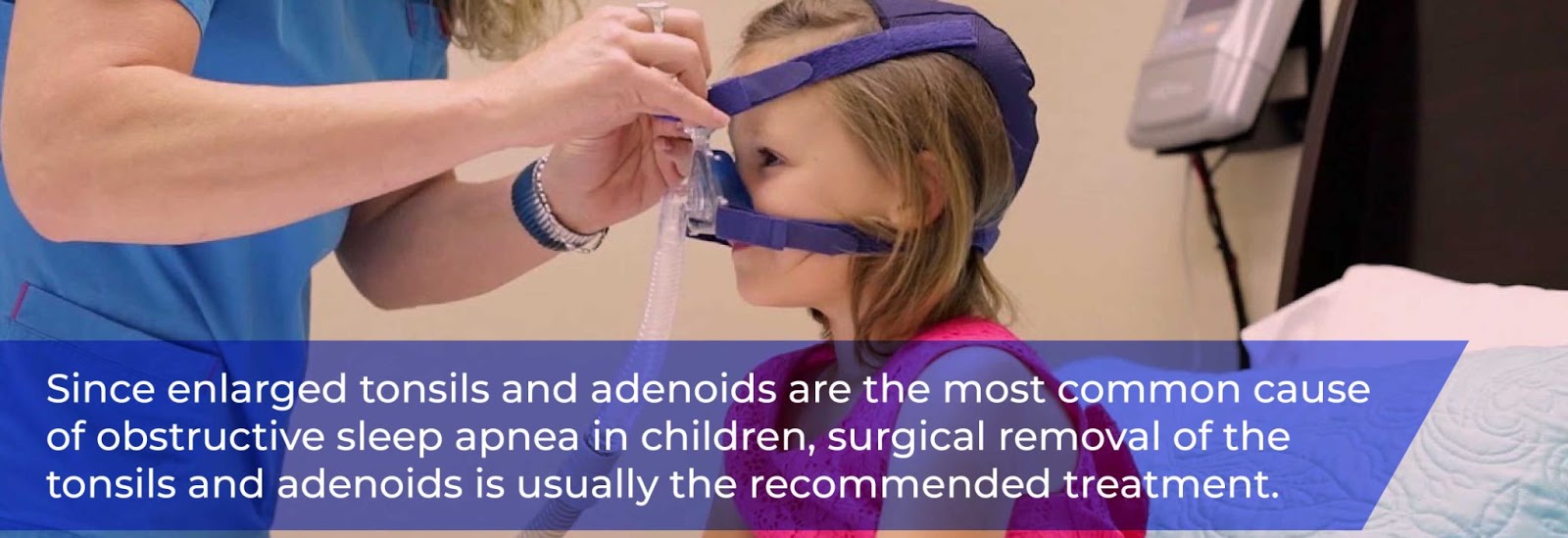
Adults aren't the only ones who suffer from sleep apnea. Children with obstructive sleep apnea experience the same symptoms as adults like stopping breathing multiple times during the night and snoring. For children, the most common cause of sleep apnea is enlarged tonsils or adenoids. Chronic sinus infections and obesity can also contribute to sleep apnea in children.
Expert Solution: “The treatment for obstructive sleep apnea is based on its cause. Since enlarged tonsils and adenoids are the most common cause of obstructive sleep apnea in children, surgical removal of the tonsils and adenoids is usually the recommended treatment. In cases where surgery is not helpful, another effective treatment is continuous positive airway pressure (CPAP).” - The Children’s Hospital of Philadelphia.
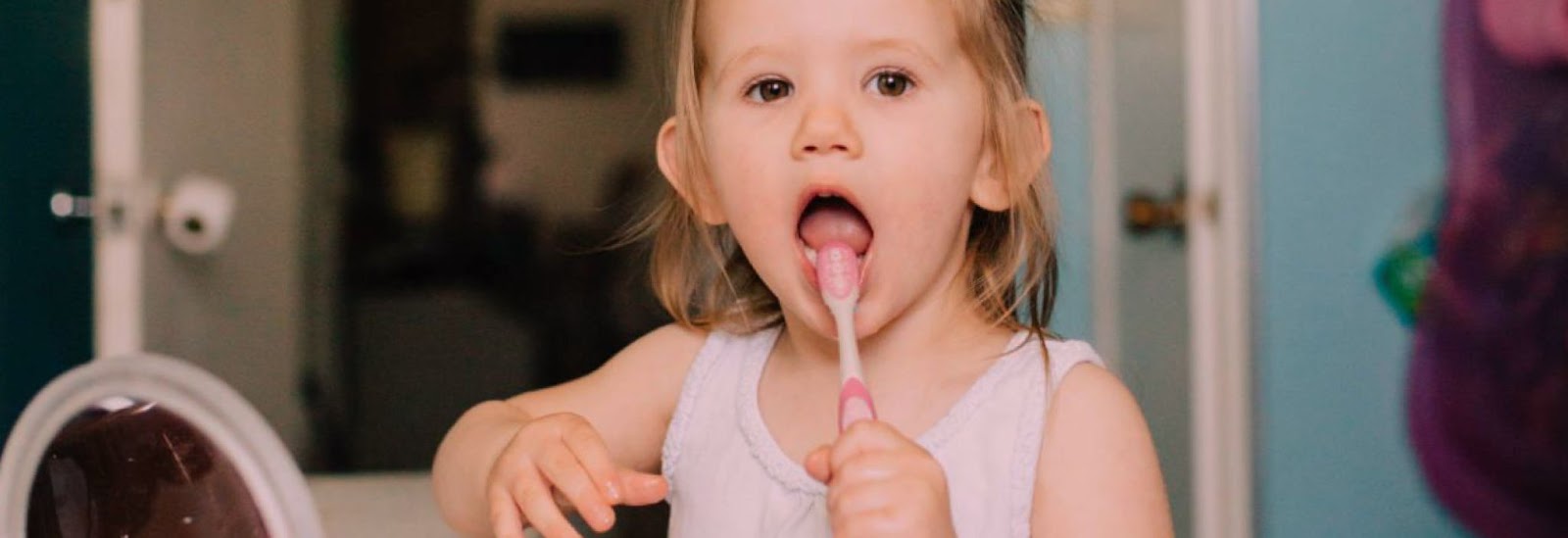
There are some sleep problems and solutions that transcend age. Sleep, or lack of, can be impacted by many factors. Whatever is causing your child to have issues with sleep, here are a few solutions to help your child get the sleep they need.

Everyone seems to be involved in every sport, club, or activity. It’s impossible to “do it all” and still maintain a healthy sleep schedule and make time for school work. Many children today are overscheduled and it’s causing issues like burnout and anxiety.
Expert Solution: “When helping your child choose activities, weigh the benefits for both the child and family against the time everyone will have to invest. The balance of fun, organized activities with plenty of down time will help kids see that all of these things are important.”- Deb Lonzer, MD, Cleveland Clinic

According to the CDC, 6.1 million children in the United States have been diagnosed with ADHD. The stimulant drugs used to treat ADHD in children like Adderall and Ritalin can cause trouble sleeping. These drugs help children function normally in school but can cause some trouble sleeping later on in the day. Children with ADHD often have trouble sleeping prior to taking stimulant medication.
Expert Solution: “Children with ADHD tend to have difficulty sleeping at night at baseline prior to treatment, as they tend to have difficulty self-regulating. The first coping mechanism I advise is a bedtime routine which is the same each night and allows the child to calm down prior to going to bed.”- Elise J. Branca, MD
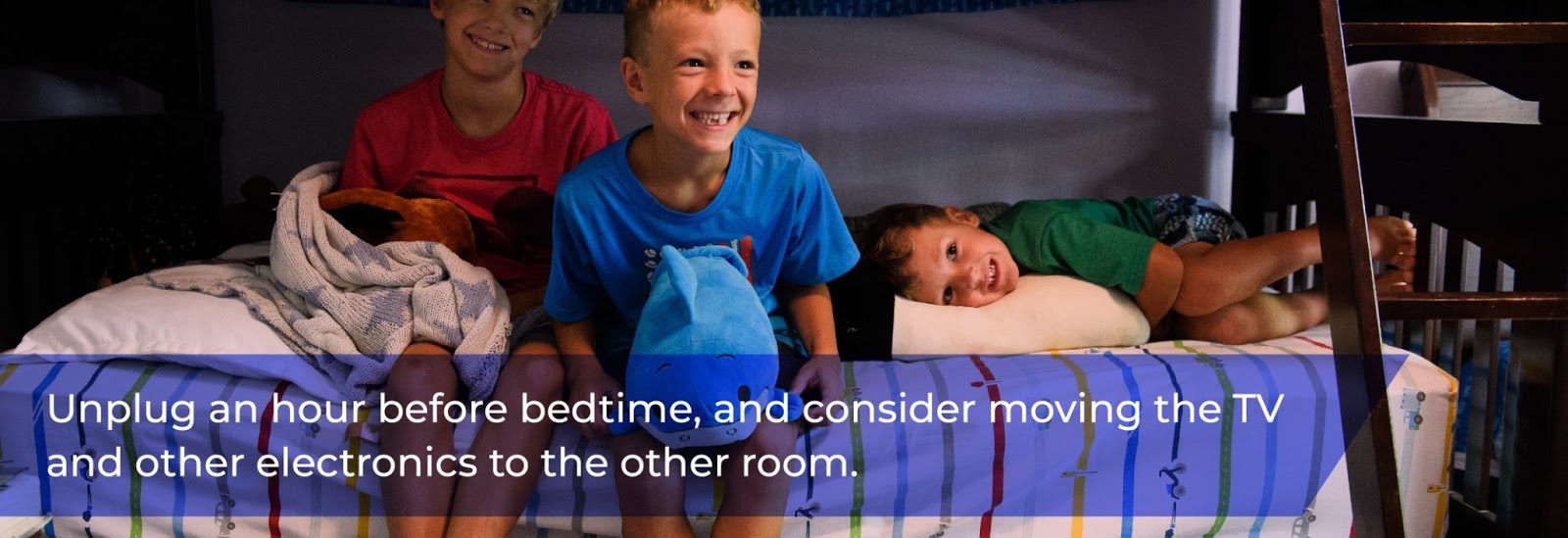
To sleep well, your child’s environment needs to be sleep-ready. A messy bedroom full of your child’s toys and other distractions like technology, can lead to them wanting to stay up and beat another level of their latest video game. Creating an environment conducive to sleep is the best way to help your child get to sleep.
Expert Solution: “Our bodies take between three to four hours to wind down before sleep. Research shows that the blue light emitted by computers, smartphones, TVs and LED light bulbs wreak havoc on the natural process and can prevent the body from producing melatonin.
At the very least, unplug an hour before bedtime, and consider moving the TV and other electronics to the other room.”- “ Dr. Charlene Gamaldo

Children don’t need to join a gym to get in their exercise. Toddlers only need time to crawl, run, or dance, while older children can add sports, playing outside, or other recreational activities to their workout.
Although exercise is beneficial, it should not be done right before bedtime, as the endorphins can keep children awake.
Expert Solution: “Children who exercise less during the day take longer to fall asleep at night. Children who were physically active during the day, fell asleep more rapidly than their more sedentary peers. The more vigorous activity they did, the faster they fell asleep.”-Medical News Today

Having a bedtime routine is vital for children to get to sleep. Bedtime routines for children include bath time, brushing their teeth, putting on pajamas, and a bedtime story. A consistent routine lets your child know what to expect each night.
Expert Solution: “This means your child goes to bed at or at least near the same time each night, experiencing a predictable sequence of events. That could include having a snack and a drink, getting a bath, putting on pajamas, brushing teeth, taking a final bathroom trip, and wrapping up with two bedtime stories.
When the routine is established, you make it clear to the child that there is no more food or drink later on or extra stories after two have been read.” - Lynelle Schneeberg, PsyD

If you’ve tried the above tips and your child is still having trouble sleeping, it is time to schedule an appointment with their doctor as your child might be suffering from a pediatric sleep disorder. You might even have some more significant concerns that necessitate a trip to the doctor. Doctors can perform an exam and possibly refer your child to a specialist for a complete diagnosis. Here are some common pediatric sleep disorders and their symptoms.

The first new months of parenthood are rough. Many new parents might think that the newborn days will never end. When your new baby arrives, it’s easy to neglect your own self care and sleep. Health of the new parents is just as important as the baby’s.
Here are a few tips to help new parents get more sleep.
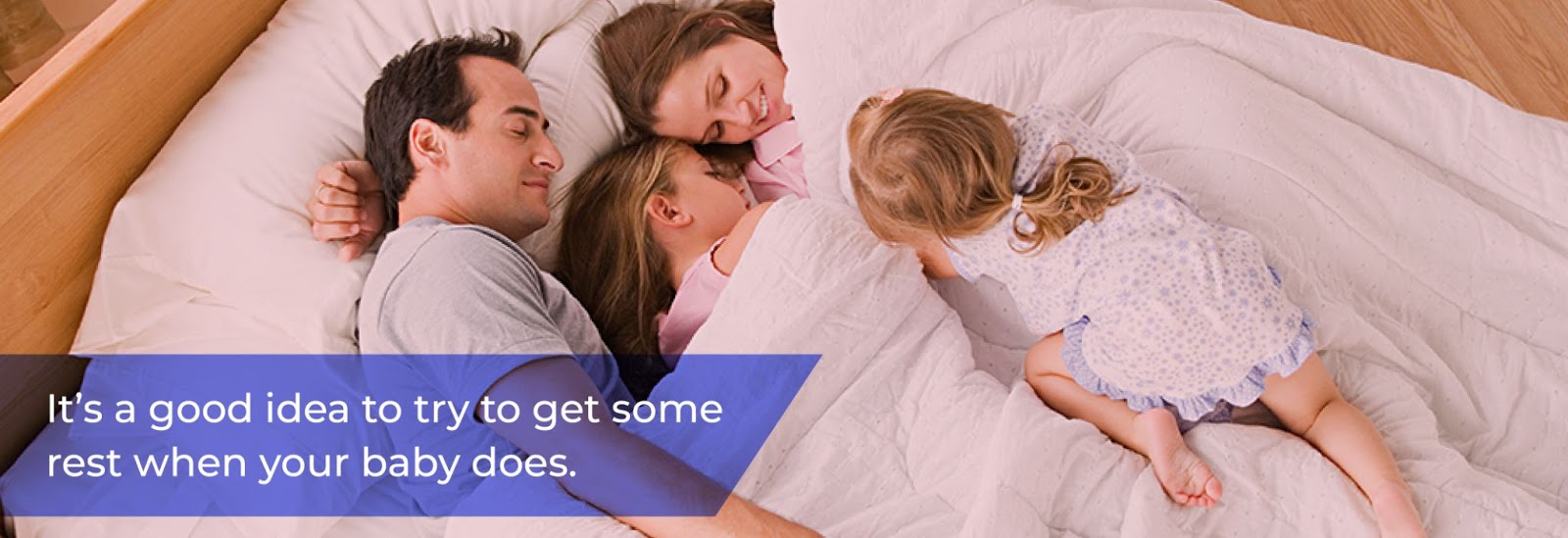
Babies sleep up to 18 hours a day. During that time, parents can nap with the baby or take turns. This might not always be possible, but it’s better than nothing and might be the only time a new parent gets to sleep.
Expert Solution: “Sleeping while the baby sleeps can sometimes be challenging because of other kids in the house or our internal body clocks, but it’s a good idea to try and get some rest.”- Grace W. Pien, M.D., M.S.C.E.
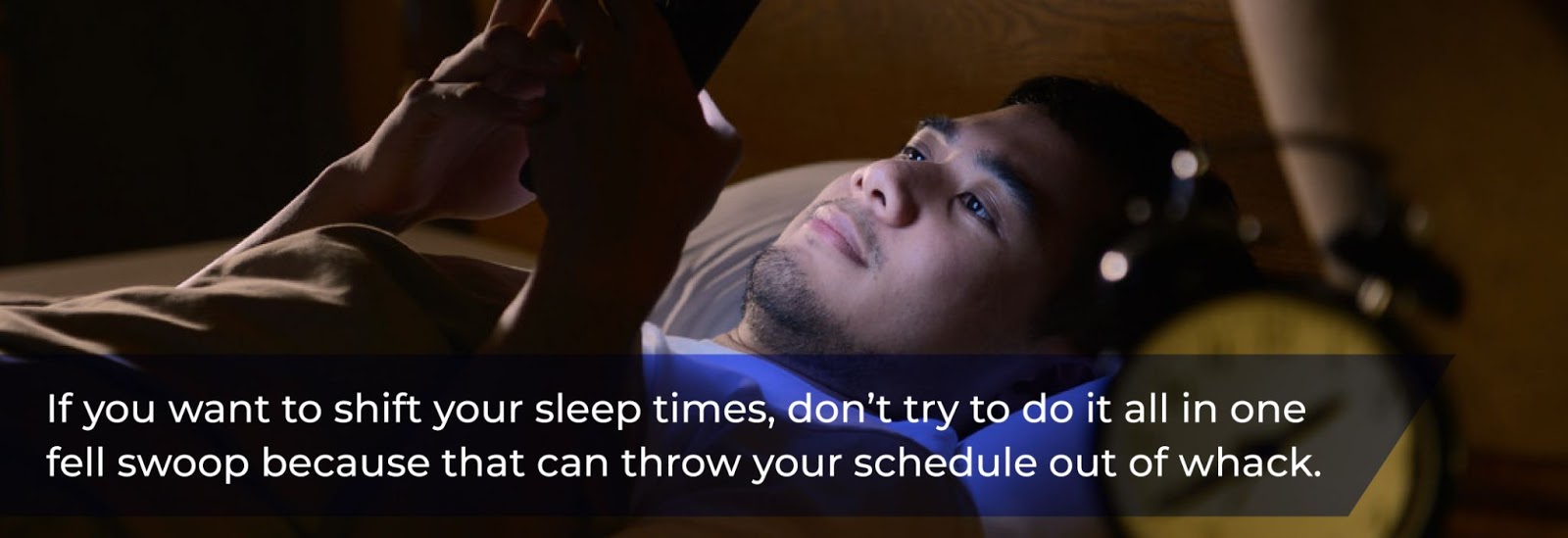
Want some sleep? Focus on your sleep hygiene, which is the process of practicing behaviors that promote good sleep. Even if you aren’t getting enough sleep, keeping up with your sleep hygiene will ensure that even the little sleep you get will be beneficial.
Expert Solution: “If you want to shift your sleep times, don’t try to do it all in one fell swoop because that can throw your schedule out of whack. Instead, make small, step-by-step adjustments of up to an hour or two so that you can get adjusted and settle into a new schedule.”- The Sleep Foundation
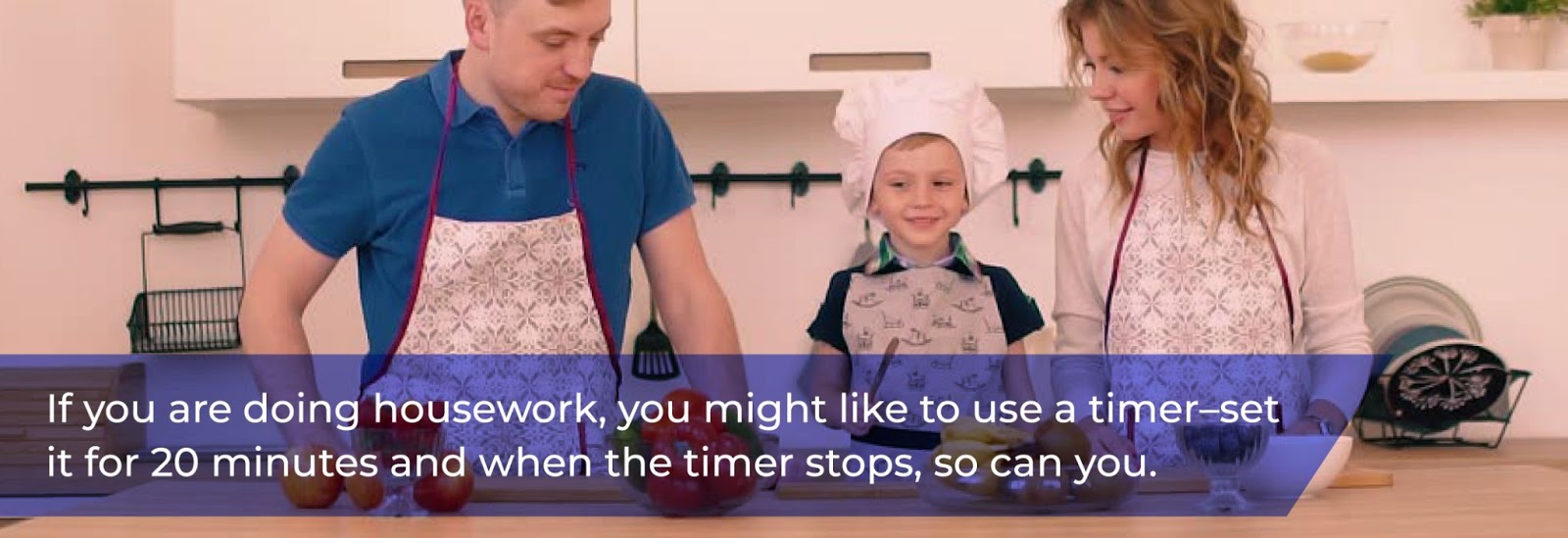
When you have a newborn that is demanding all of your attention, household chores are the last thing on your mind. Just because you have a new baby doesn’t mean the chores stop. It is possible to balance both by prioritizing chores and activities.
Expert Solution: “If you are doing housework, you might like to use a timer–set it for 20 minutes and when the timer stops, so can you. Giving yourself a clear end-point might help motivate you to get as much done as possible in a short period of time!” - Western Australia Department of Health
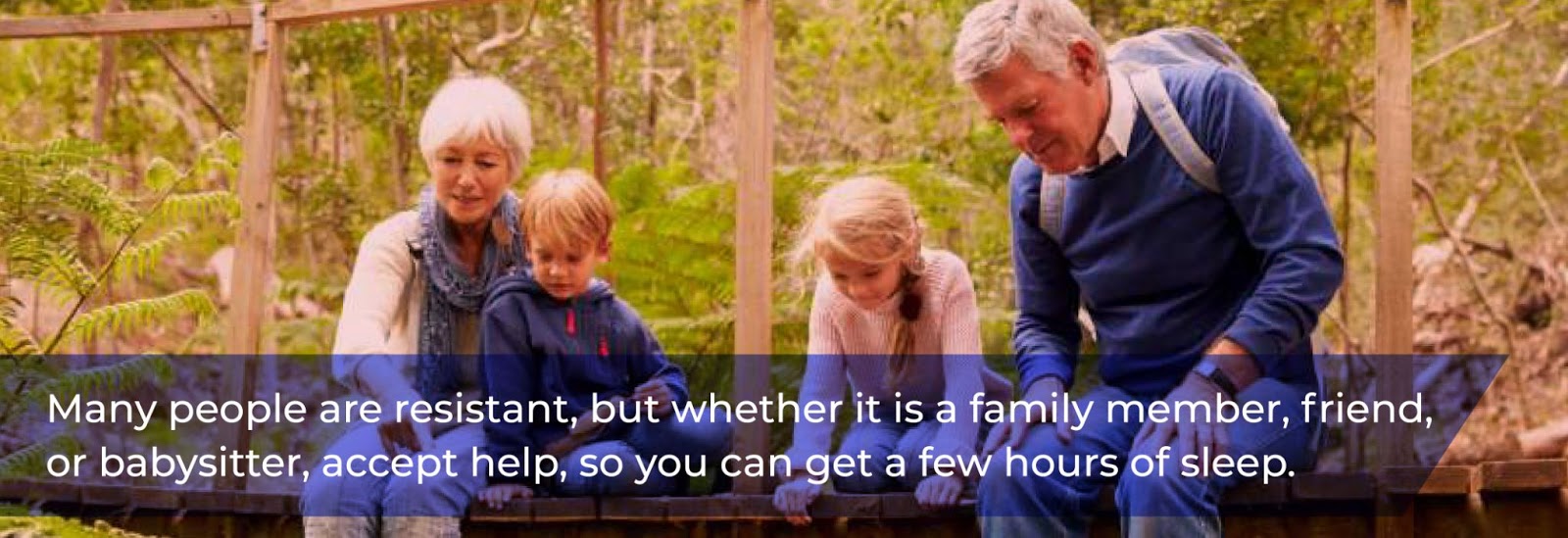
It can be difficult to ask for help. Many new parents want to do things on their own. Doing too much when you clearly need help will only cause more problems. Your family and friends will be happy to help you out and get to spend time with your new baby. Asking for and receiving help can help reduce postpartum anxiety and feelings of being overwhelmed.
Expert Solution: “Accept any help that you can get. Many people are resistant, but whether it is a family member, friend, or babysitter, accept help, so you can get a few hours of sleep. People think of sleep as a luxury, but it is a medical requirement.”- Margaret Park, MD.

With technology and remote work, it can be difficult to stop working and set boundaries between work/life. Work can become even more complicated when on maternity leave. Deadlines and projects can quickly pile up and rob focus from recovery and spending time with your new baby and your sleep.
Talk to your employer about reassigning some of your work while you are on leave. In some instances, contacting an employee on maternity leave can cause some employment and legal issues. A 2020 study found work stress during maternity leave is linked to postpartum depression and anxiety.
Expert Solution: “Limit work-related emails, texts, and phone calls. Work schedules should support sufficient sleep times. Telecommuting, staggered schedules, sanctioned workplace napping, and flex times may be viable, sleep-friendly options.”- Terry Cralle, MS, RN, CPHQ

When taking care of a new baby, it is easy to neglect yourself and your own care. If you don’t take care of yourself, it will be more difficult to take care of your baby. It might not be possible to get a full night's sleep, but you can recharge in other ways like taking a nap, listening to music or a podcast, reading, or watching TV.
Expert Solution: “You may be wondering how it’s even possible to pursue a hobby when you have a baby, but finding some time (even a few minutes) every day to do something that you really enjoy can help reduce stress.” - Tracie Kesatie, MA

Self soothing is the process of your baby calming themselves down and going back to sleep. This isn’t something that babies can do right away and will usually learn how to self soothe at about 6 months old. Babies will cry regardless if they need something. As babies grow, they will learn to fall asleep on their own. Allowing your baby to self soothe will give parents time to rest.
Expert Solution: “By about 5 months, most babies have the capability to fall asleep on their own, and if we're still doing it for them, we're getting in their way. Start practicing in the early months to put Baby down awake, at least once a day—usually the first nap is the most successful." - Heather Turgeon, Sleep Consultant.

You might turn to drugs to help you fall asleep faster. This can be especially dangerous if you only have a short amount of time to sleep. The drug won't fully be out of your system and you can end up drowsy and possibly cause an accident.
Don't take medications on the spur of the moment, especially if your doctor hasn't given you the go-ahead. If new moms are breastfeeding, sleeping pills can end up in breast milk and passed onto babies.
Expert Solution: “Potent prescription drugs such as eszopiclone (Lunesta), zaleplon (Sonata), and zolpidem (Ambien) have been associated with increased car accidents and more than double the number of falls and fractures in older adults. Many people can benefit from a high-quality melatonin product, ideally one that lasts 7 hours, which can help regulate sleep cycles and support healthy REM sleep.” - Dr. David Brodner
When it comes to parenting, establishing a sleep routine can be one of the most difficult aspects of raising children. With some of the above mentioned tips, you and your child will be snoozing away in no time! If sleep problems persist, it is best to consult with a doctor. Looking for even more sleep tips and mattress comparisons? Visit SleePare’s website for more. If you live near any of our store locations, stop by to test out the best-selling online mattresses.


 Showrooms
Showrooms
Meet The Author:
Shanir Kol
Shanir Kol, founder and CEO of SleePare, pioneered the “Try and Buy” model in eCommerce, enhancing mattress shopping by combining in-store trials with online purchases. Launching in 1999, his company focuses on customer satisfaction and eco-friendly practices, aiming to minimize mattress waste and expand sustainably.